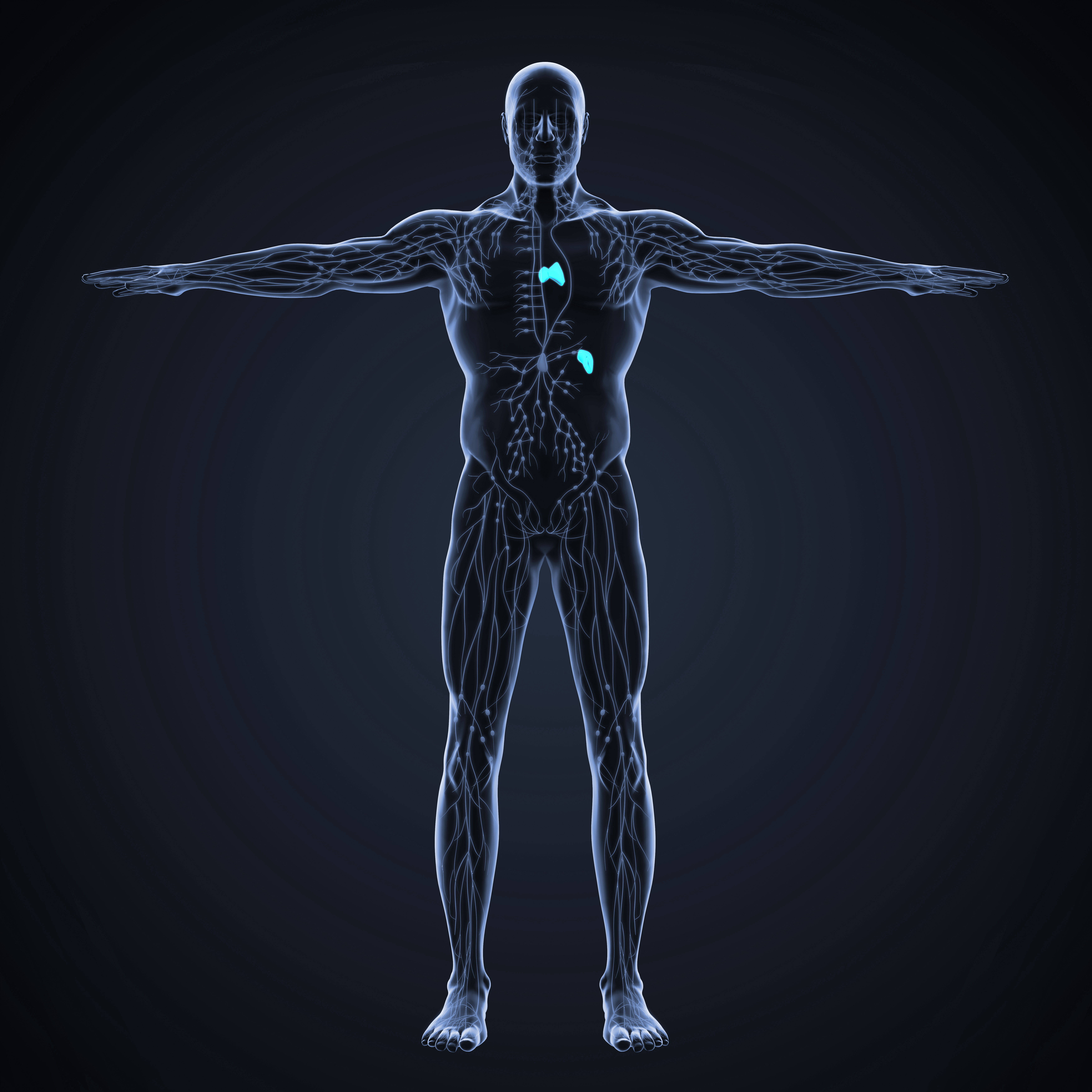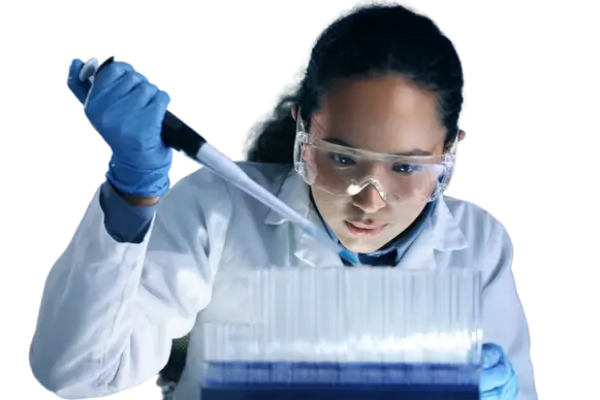Non-Hodgkin Lymphoma
Non-Hodgkin Lymphoma Clinical Trial
According to the American Cancer Society, over 80,000 people in the United States are expected to receive a non-Hodgkin lymphoma (NHL) diagnosis in 2025. While the highest-risk group continues to be older people, NHL is one of the most common cancers among children, teens, and young adults.1

NHL is a cancer of the cells in the lymph system, which carries a watery like fluid that contains white blood cells, including B-cells. Because healthy B-cells are needed to fight infection and other disease, this cancer places NHL patients at risk for more severe or frequent infection. The lymph system runs throughout the body, and the symptoms of NHL are often swelling of the lymph nodes, fever and fatigue.
Standard therapy for NHL is chemotherapy,2 and for patients with certain types of NHL, an antibody therapy called ‘rituximab’ is also recommended. These antibodies target and kill cancer cells with a specific protein on their surface, called CD20.3 Most NHL patients are successfully treated with these therapies, but about 30-40% of them will either not respond at all or have the NHL return after initially successful treatment.
For patients whose NHL does not respond to treatment (called ‘refractory’ cancer) or in whom NHL returns (called ‘relapsed’), new treatments are needed.
ImmunityBio’s Clinical Trial for Refractory or Relapsed NHL
QUILT-3.092 Clinical Trial of Non Hodgkin’s Lymphoma Refractory/Relapsed
We are conducting a clinical trial to study the effects of two new therapeutics in combination with an existing one (rituximab). One potential treatment being tested is a type of modified immune cell called a natural killer (NK) cell. NK cells are the first line of defense against cancer. We have engineered a line of NK cells to be even more effective at killing cancer, and refer to these cells as high-affinity NK or ‘haNK’ cells. For NHL, the cells were further engineered to target a protein marker, CD-19, on NHL cancer B-cells.4 These CD-19-targeted NK (CD-19 t-haNK) cells will be tested in combination with our NK (and T-)-cell activator, N-803. The third component of the combination is the anti-CD20 targeted antibody rituximab, an existing treatment for NHL.3
The clinical trial QUILT 3.092 is for refractory or relapsed NHL patients and is ‘open-label’, meaning both the participant and doctor know what the patient is receiving. It is a Phase 1 study, so the focus will be on assessing the safety of the new combination, although its anti-cancer effects will also be determined.
Up to 20 participants will be enrolled. All of the participants will receive CD19 t-haNK alone over the first 4 weeks of treatment. Then, because one of the goals of the trial is compare treatment with or without N-803, half of the patients will receive another 4 weeks of treatment with CD19 t-haNK and rituximab with N-803, and half without N-803. Participants can expect to received treatment for about 15 weeks (if the combination is found to be safe), with follow-up lasting a year.
Safety will be assessed by number and severity of symptoms participants experience or that their study health provider records (adverse events) while being treated. The results of blood tests are also investigated.
The number of participants who are successfully treated (the response rate), how long they are NHL-free (duration of response), the length of time participants live without worsening of disease (progression-free survival), and how long participants live (overall survival) are all aspects of assessing how well the new treatment combination works.
Who can participate?
People who are 18 years of age or older and have relapsed or refractory B-cell NHL that is positive for both CD19 and CD20 that persists after at least two attempts at chemotherapy may be enrolled. Participants should have previously received rituximab or another anti-CD20 antibody and undergone a procedure called ‘autologous transplant’ (or were not eligible to receive autologous transplant). In autologous transplant, some of the patient’s own healthy blood cell-generating bone marrow is collected and stored, and then returned to them after their chemotherapy treatment.
The planned start of the study is mid-2024. Details on the study can be found on clinicaltrials.gov under the search term ‘QUILT-3.092’.5
https://clinicaltrials.gov/study/NCT05618925
- American Cancer Society: Key Statistics for Non-Hodgkin Lymphoma https://www.cancer.org/cancer/types/non-hodgkin-lymphoma/about/key-statistics.html (2025) .
- American Cancer Society. Treating Non-Hodgkin Lymphoma. American Cancer Society, Inc.https://www.cancer.org/cancer/types/non-hodgkin-lymphoma/treating.html#:~:text=Chemotherapy%20is%20the%20use%20of,a%20set%20period%20of%20time2024.
- Radhakrishnan, V. S. & Davies, A. J. Bispecific antibodies in indolent B-cell lymphomas. Front Immunol 14, 1295599, doi:10.3389/fimmu.2023.1295599 (2023).
- Wang, K., Wei, G. & Liu, D. CD19: a biomarker for B cell development, lymphoma diagnosis and therapy. Experimental Hematology & Oncology 1, 36, doi:10.1186/2162-3619-1-36 (2012).
- National Library of Medicine. Study for Subjects With Relapsed/Refractory Non- Hodgkin Lymphoma. clinicaltrials.gov https://clinicaltrials.gov/study/NCT05618925?term=QUILT-3.092&rank=1 2024



